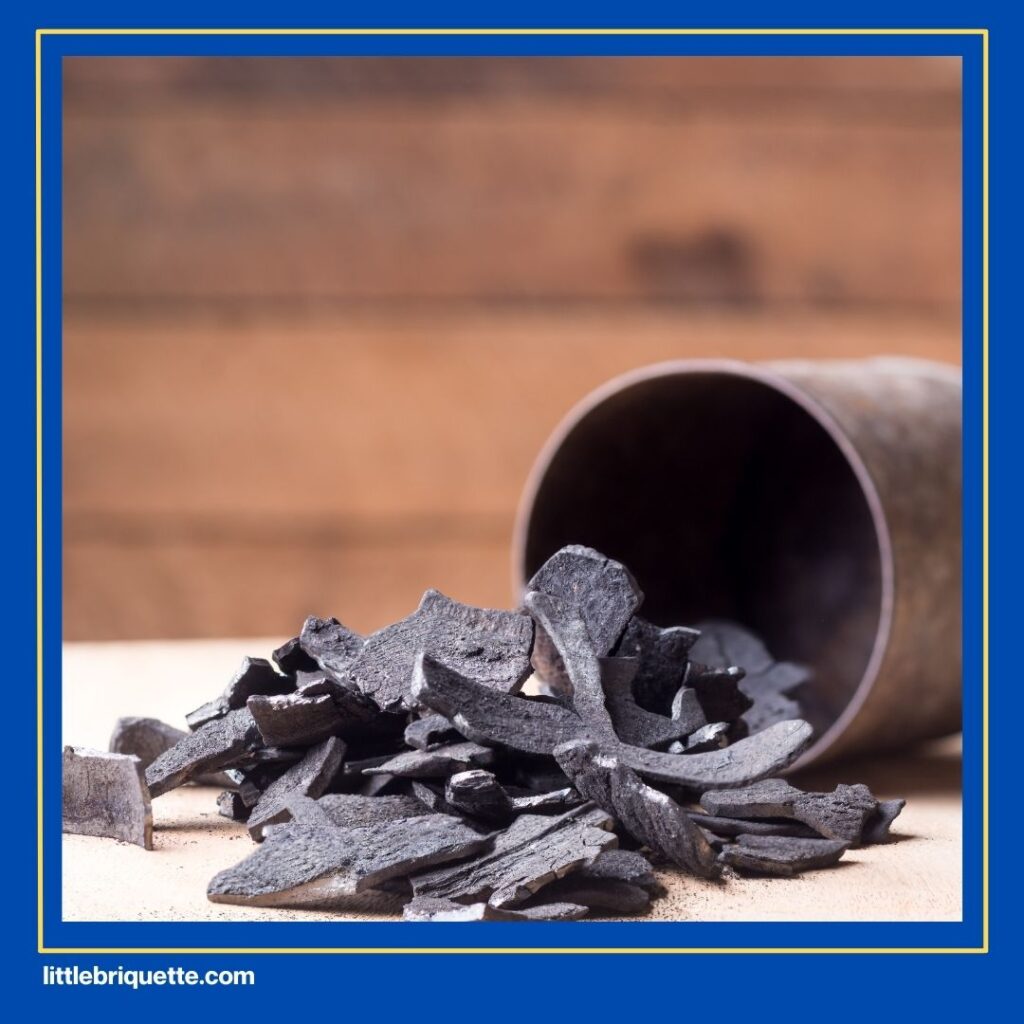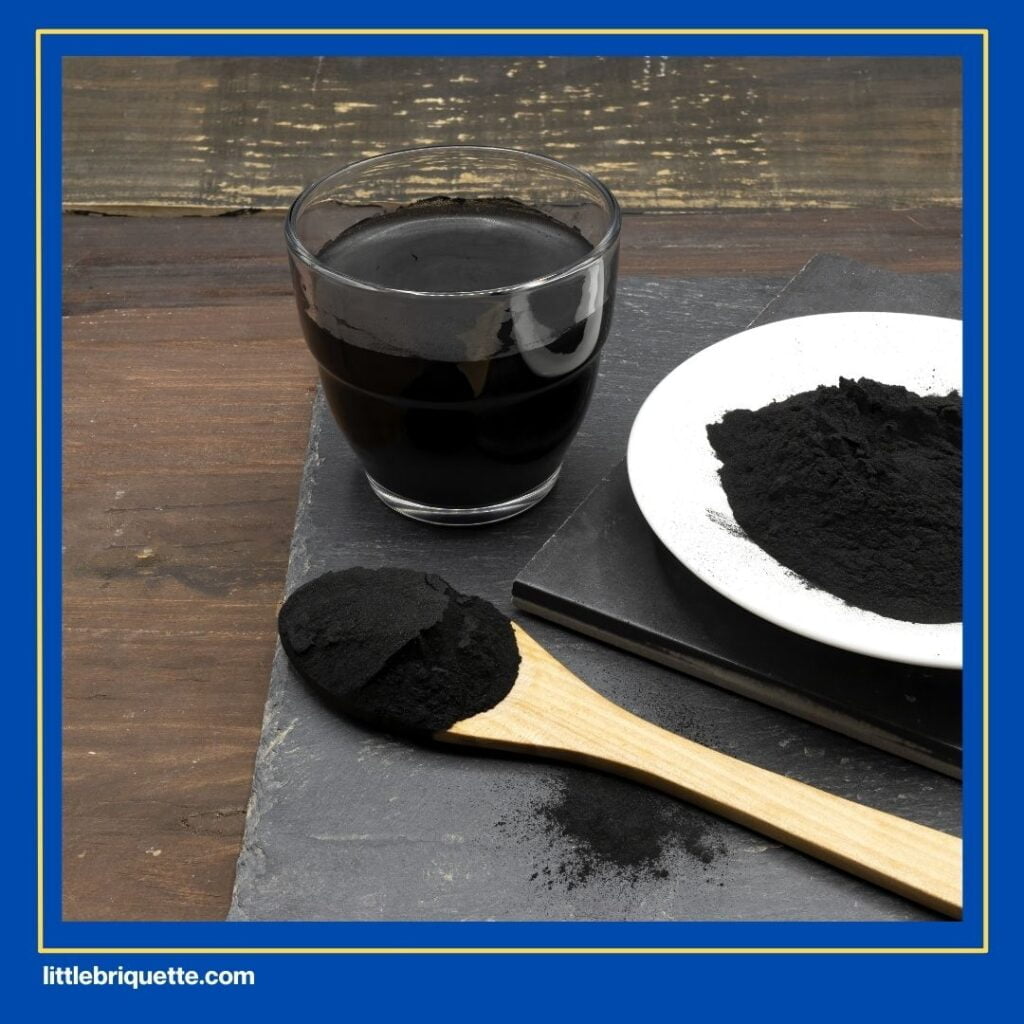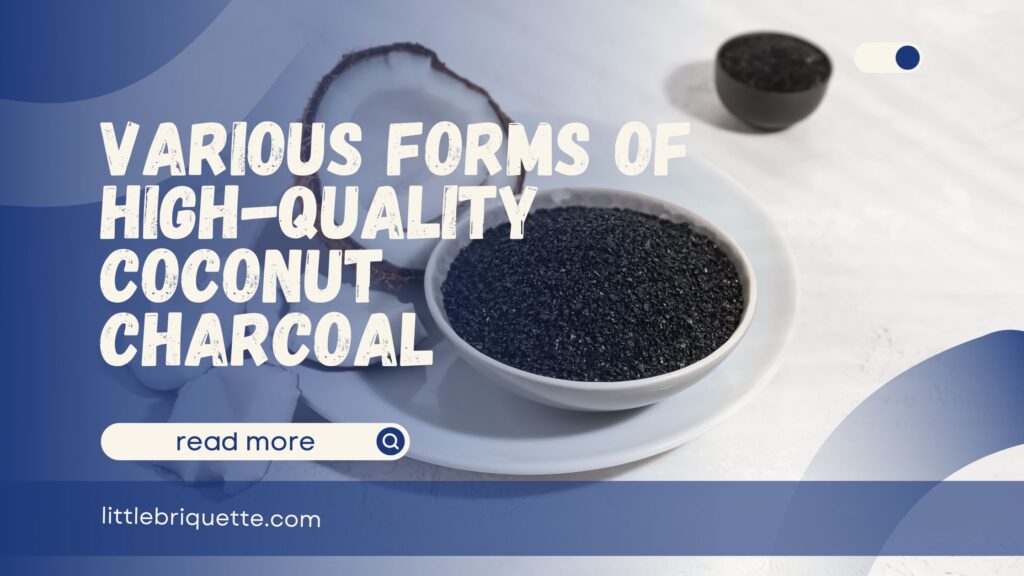Coconut charcoal, known as a renewable energy fuel processed through carbonization, possesses environmentally friendly properties where users can reduce their carbon footprint compared to fossil fuels. Charcoal from coconut shells comes in various forms of coconut charcoal that can be utilized according to their specific applications. Currently, this product has found numerous applications across different sectors, including food industry, pharmaceuticals, and as a medium for water and soil filtration.
The selection of high-quality coconut charcoal is crucial to ensure efficiency and safety in its usage. High-quality coconut charcoal exhibits consistent characteristics in terms of fineness, density, as well as its ability to generate heat effectively and durability. This not only enhances the efficiency of using coconut charcoal in applications such as cooking and industrial processes but also reduces potential risks such as excessive emissions or hazardous residues.
Various Forms of Coconut Charcoal
Charcoal derived from coconut shells processed using either modern or traditional techniques to replace other traditional charcoals comes in various forms that can be tailored to specific uses. Below are the various forms of coconut shell charcoal along with their benefits and uses.
Powdered Coconut Charcoal

Powdered coconut charcoal is the result of grinding or crushing fine powder produced from the carbonization process of coconut shells or coconut wood powder. These fine particles have a large surface area and high porosity, making them highly effective in absorbing chemicals and eliminating unwanted odors and tastes in various applications.
The advantages and uses of powdered coconut charcoal are as follows:
- Cooking: Powdered coconut charcoal is used as a fuel for cooking because it can generate stable and intense heat. The presence of pores in charcoal allows for even distribution of heat, resulting in dishes with better taste.
- Industry: Apart from cooking, powdered coconut charcoal is used in the food industry for purification processes and removal of contaminants from various raw materials. In the pharmaceutical industry, powdered coconut charcoal is often used as a raw material for the production of medicines and supplements.
Coconut Shell Charcoal in Shell Form

Coconut shell charcoal in shell form is produced from the carbonization process of the outer hard shell of coconuts, after it has been cleaned and separated from its fibers. The carbonization process involves heating the coconut shell at high temperatures without air, transforming it into charcoal. The main characteristics of coconut shell charcoal include high density and durability for long-term use. Its high density allows coconut shell charcoal to be more compact and durable compared to charcoal made from coconut wood powder or husks. Additionally, coconut shell charcoal has high porosity with large pores and an effective surface area for absorbing various chemicals and contaminants from water and soil. This makes it highly suitable as a filtration medium for purifying water and improving soil quality in agriculture.
The exceptional porosity of coconut shell charcoal makes it a primary choice for various filtration applications. In water filtration systems, coconut shell charcoal can remove odors, colors, tastes, and reduce harmful substances such as chlorine, pesticides, and heavy metals. Its large pores and complex surface structure enable coconut shell charcoal to efficiently capture these particles. Moreover, in agriculture, coconut shell charcoal can be used to enhance soil quality by improving water retention, reducing soil acidity, and binding essential nutrients crucial for plant growth. Therefore, coconut shell charcoal not only provides environmental benefits through the use of renewable raw materials but also offers effective solutions for maintaining water and soil quality towards environmental sustainability.
Coconut Shell Charcoal Briquettes

Another form of coconut shell charcoal is coconut shell charcoal briquettes, which are coconut charcoal compressed into briquette form using high pressure. The manufacturing process involves compressing coconut wood powder or coconut shell that has undergone carbonization. These briquettes often have a denser and more compact form compared to other forms of coconut charcoal, such as coconut shell or powdered charcoal.
Here are the advantages of using coconut shell charcoal briquettes compared to other fuels:
- Combustion Efficiency: Coconut shell charcoal briquettes have high and uniform density, allowing them to produce stable and intense heat when burned. This makes them more efficient for cooking or heating compared to regular firewood or powdered coconut charcoal.
- Durability and Ease of Use: Their high density contributes to their durability and makes them easy to store and handle. Briquettes do not easily break or produce dust, making them practical for both household and industrial use.
- Environmental Friendliness: Coconut shell briquettes are produced from natural raw materials—coconut shells or coconut wood powder—that are by-products of the coconut industry. Their use helps reduce the use of firewood from mature trees, which take a long time to regrow.
- Air Quality: Coconut shell briquettes tend to produce less smoke and harmful emissions compared to fossil fuels like coal. This contributes to improving air quality in the surrounding environment.
In summary, coconut shell charcoal briquettes offer efficient combustion, durability, ease of use, and environmental benefits, making them a practical choice for various cooking, heating, and industrial applications while contributing to environmental sustainability.
Activated Coconut Charcoal – Various Forms of Coconut Charcoal

Activated charcoal, also known as activated carbon, is a type of charcoal with a structure characterized by very large pores and a high surface area. Activated charcoal is made from carbonaceous materials heated at high temperatures under conditions with little or no air. This process creates a highly porous structure capable of effectively absorbing chemicals and gases.
The main difference between activated charcoal and other forms of coconut charcoal such as charcoal briquettes or coconut shell charcoal lies in its much higher porosity and superior adsorption capabilities.
Activated charcoal has a wide range of important applications across various sectors, including water treatment, medicine, and the food industry. In water treatment, activated charcoal is used to absorb and remove harmful chemicals such as heavy metals, pesticides, and soluble organic substances from water, as well as to eliminate unwanted odors and tastes from drinking water. In medicine, activated charcoal is often used as an adsorbent to treat drug overdoses or poisoning by absorbing toxins in the digestive system, thereby reducing damage caused by toxic substances.
Moreover, in the food industry, activated charcoal is used as an additive to enhance color, texture, and to eliminate unwanted odors or flavors in food and beverages. Activated charcoal is also crucial in the purification of oils and the processing of sugar to produce high-purity products. Thus, the wide-ranging applications of activated charcoal make significant contributions to maintaining water quality, human health, and the quality of consumed food products.
The Best Coconut Charcoal Producer
Little Briquette now offers high-quality coconut charcoal produced using raw materials from Sumatran coconuts, along with a safe production process free from harmful chemical contamination. To obtain high-quality coconut charcoal, you can get it by click here.

